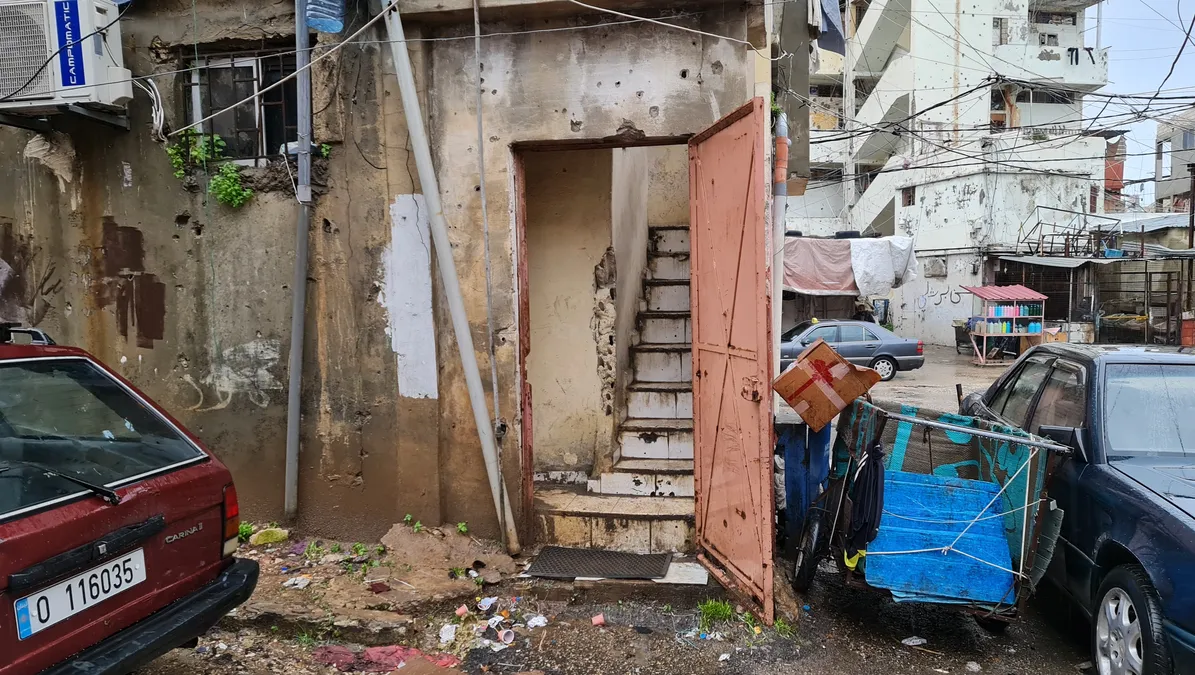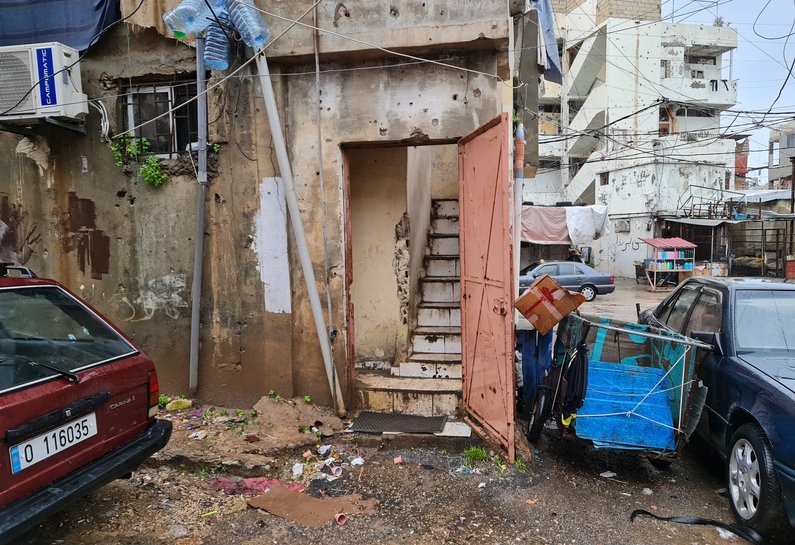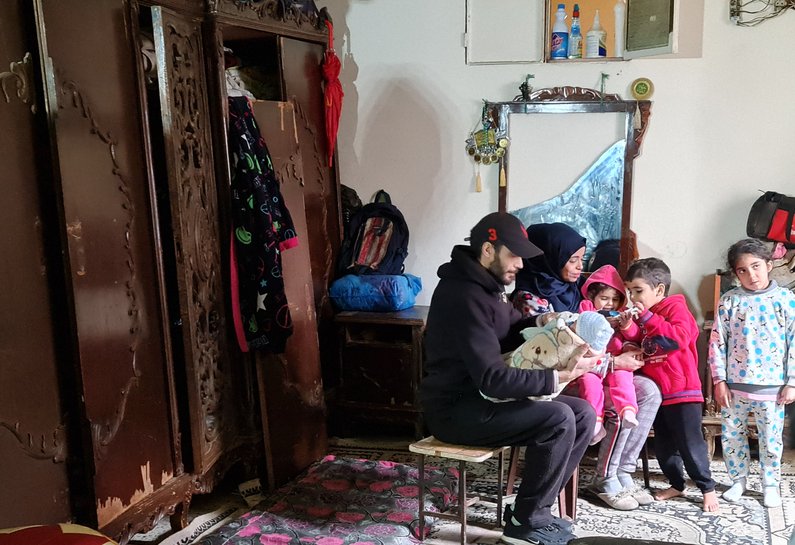“We have only one hour of electricity per day”
22 February 2022


In a single room house in the alleys of Ein el Helweh refugee camp, in the south of Lebanon, Katia* lives with her husband, Ahmad*, and four young children. A fierce storm was hitting Lebanon when I visited the family and the room they are living in was freezing cold with no heating.
As with many Palestinian refugees in Lebanon, the family have been hit with severe electricity cuts and significant increases in the price of fuel used for heating, meaning they were not able to keep warm during the cold winter months. The door leading into their home was kept open despite the cold weather, as this was their only source of light.
“We have only one hour of electricity per day. I cannot afford to have a private generator subscription [as an alternative source of electricity]. Most days, we stay in the dark all day long. I used to buy candles but now they are too expensive and, in winter, I am not able to find work on most days, so I use the little money I have for food for the children,” Ahmad explained.
Ahmad has been struggling to find work for years. He has looked tirelessly for opportunities but had no success. To secure the most basic needs for his children, Ahmad collects junk and sells it for pennies.
Palestinians in Lebanon face major challenges in accessing formal employment, with the government restricting their rights and access to almost 40 professions. As a result, most end up working in low-pay temporary jobs or in informal employment− which leaves them exposed to exploitation, and increased poverty and marginalisation.

Ahmad, Katia and their children in their home in Ein el Hilweh refugee camp. (Credit: Wafa Dakwar/MAP).
During Katia’s last pregnancy, MAP’s community midwives and nurses regularly visited her to offer health screenings, check-ups and nutritional counselling. “The home visits helped me a lot. Midwife Saria used to visit me during pregnancy and is continuing to support me after childbirth. She explains things to me clearly and gives me very useful advice. She always answers me when I need her advice or help with a health problem related to me or my baby,” said Katia.
Lebanon is experiencing its worst economic crisis in decades, which ranks among the world’s worst financial crises since the mid-nineteenth century. Inflation has reached an all-time high, and food prices have quadrupled, leaving many Palestinian refugees struggling to put food on the table.
To mitigate the risk of acute malnutrition and related illnesses, MAP has provided nutritious food parcels to 7,251 Palestinian families, including families with pregnant women, nursing mothers, people with disabilities or severe chronic illness and female-headed households.
Katia benefitted from this assistance which she considers extremely helpful. “The house was empty; I did not have anything to cook. The MAP food parcel saved me from constantly worrying about finding food for the children for the next day. It also helped me to eat nutritious food during pregnancy which was good for my baby and gave me the energy to take care of my other children,” said Katia.
Ahmad complimented MAP’s impartiality as it gives the assistance to families in need regardless of their characteristics and opinions. “Some organisations or political factions distribute food, clothes or other assistance, but I never get anything despite being in desperate need,” said Ahmad. “They give support to people that are affiliated to their political party or linked to someone powerful. Poor people like me who just want to work to have a dignified life get excluded from their assistance. MAP midwives, on the other hand, came to our house to help my wife during pregnancy, and they gave us food as they saw how much we are struggling to secure the most basic things to survive. They did not ask for anything in return or about our opinions or who we like or dislike. I have lots of respect for your charity.”
Ahmad and Katia thanked MAP and hoped that it continues to support Palestinian refugees in Lebanon during this economic crisis and until their right to return to Palestine is possible.
Please consider donating to MAP to support Palestinian refugees in Lebanon during the economic crisis.
*Names have been changed to protect the identity of people involved.
Top photo: Ein el Hilweh refugee camp. (Credit: Wafa Dakwar/MAP).